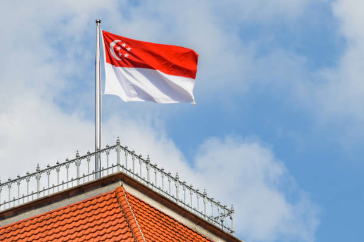The Singapore government is set to implement significant changes to its work permit policies, offering greater flexibility for employers to hire and retain foreign talent.
The new regulations, which take effect on July 1, 2025, aim to help businesses manage their workforce needs while maintaining Singapore’s competitive edge in the global job market.
Under the revised rules, work permit holders will no longer have a maximum employment period, a policy shift that aligns with the current regulations for workers from Malaysia, Hong Kong, Macau, South Korea, and Taiwan. Previously, the maximum duration ranged from 14 to 26 years, depending on factors such as skill level, sector, and country of origin.
Extended Employment Age Limits
Along with the removal of employment duration limits, Singapore will also raise the maximum employment age for work permit holders from 60 to 63, in line with the country’s official retirement age. Additionally, the age limit for new work permit applicants will increase from 50 to 61 for non-Malaysians and from 58 to 61 for Malaysians. These changes will provide businesses with the flexibility to retain experienced workers for a longer period.
Broader Sources for Foreign Workers
To address ongoing labor demands, the Ministry of Manpower (MOM) will expand the list of countries eligible for work permit applications. From September 1, 2025, the range of eligible occupations in the manufacturing and services sectors will also widen to include roles such as cooks, heavy vehicle drivers, and manufacturing operators.
Higher S Pass Qualifying Salary
The government is also raising the qualifying salary for S Pass holders—mid-skilled foreign workers in industries such as construction, manufacturing, marine, and services. Starting September 1, 2025, the minimum salary will increase from S$3,150 to S$3,300. In the financial services sector, the threshold will rise from S$3,650 to S$3,800, with additional adjustments based on age.
Minister Tan See Leng Defends Foreign Talent Policies
Addressing concerns about foreign workers, Manpower Minister Dr. Tan See Leng emphasized their critical role in Singapore’s economy. Speaking in Parliament, he explained that while some Singaporeans may perceive foreign workers as taking jobs from locals, their presence is essential to attracting global businesses.
“When we see a foreigner, we think, ‘they are taking a job a local could have had.’ But what is harder to see is that, without access to foreigners, the company and its jobs may not even be in Singapore to begin with,” he stated.
Dr. Tan also highlighted that over the past decade, while the number of Employment Pass and S Pass holders grew by 38,000, the number of local professionals, managers, executives, and technicians (PMETs) increased by 382,000. This, he said, demonstrates the complementary nature of foreign and local talent in driving economic growth.
Adjustments to Employment Pass and M-SEP Scheme
Beyond work permit changes, the MOM will continue refining the Complementarity Assessment Framework (COMPASS), which evaluates Employment Pass applications. The ministry reported a positive trend of companies reducing reliance on foreign workers from a single nationality, ensuring a more diverse and sustainable workforce.
These policy adjustments mark a significant step in keeping Singapore attractive to global businesses while ensuring sustainable workforce development for the country’s long-term economic growth.



